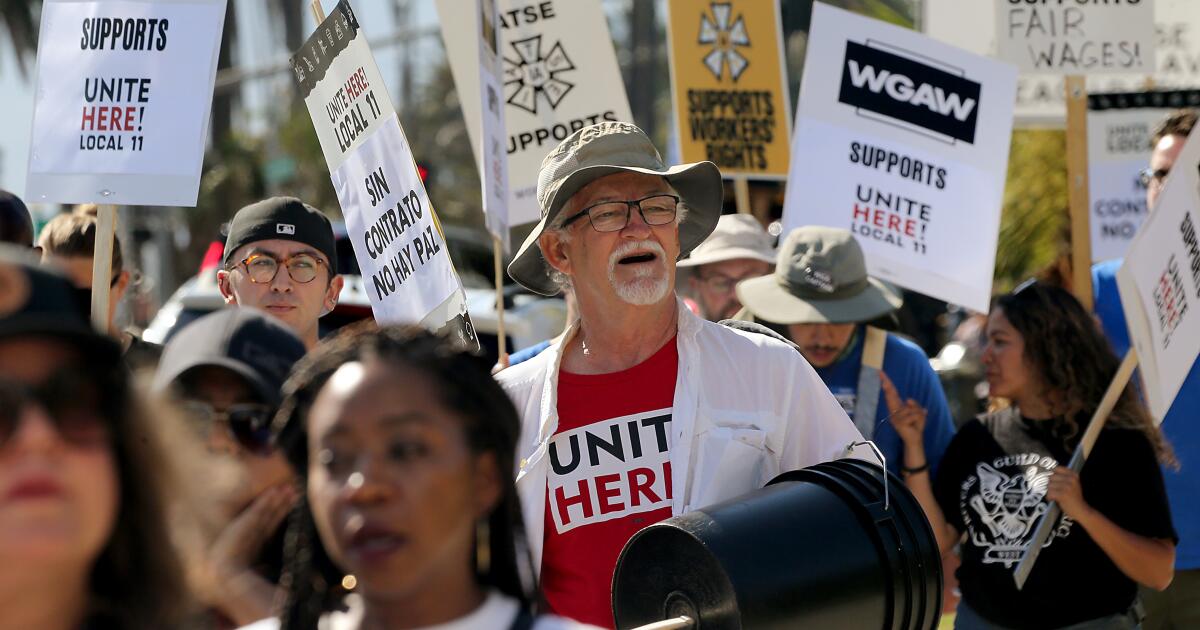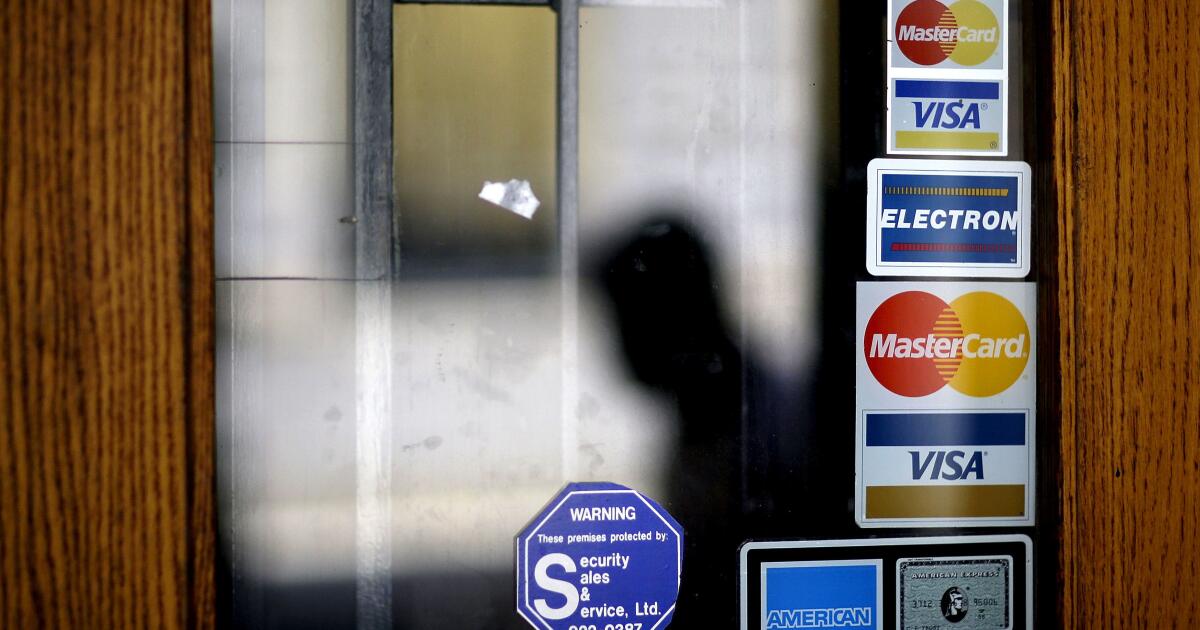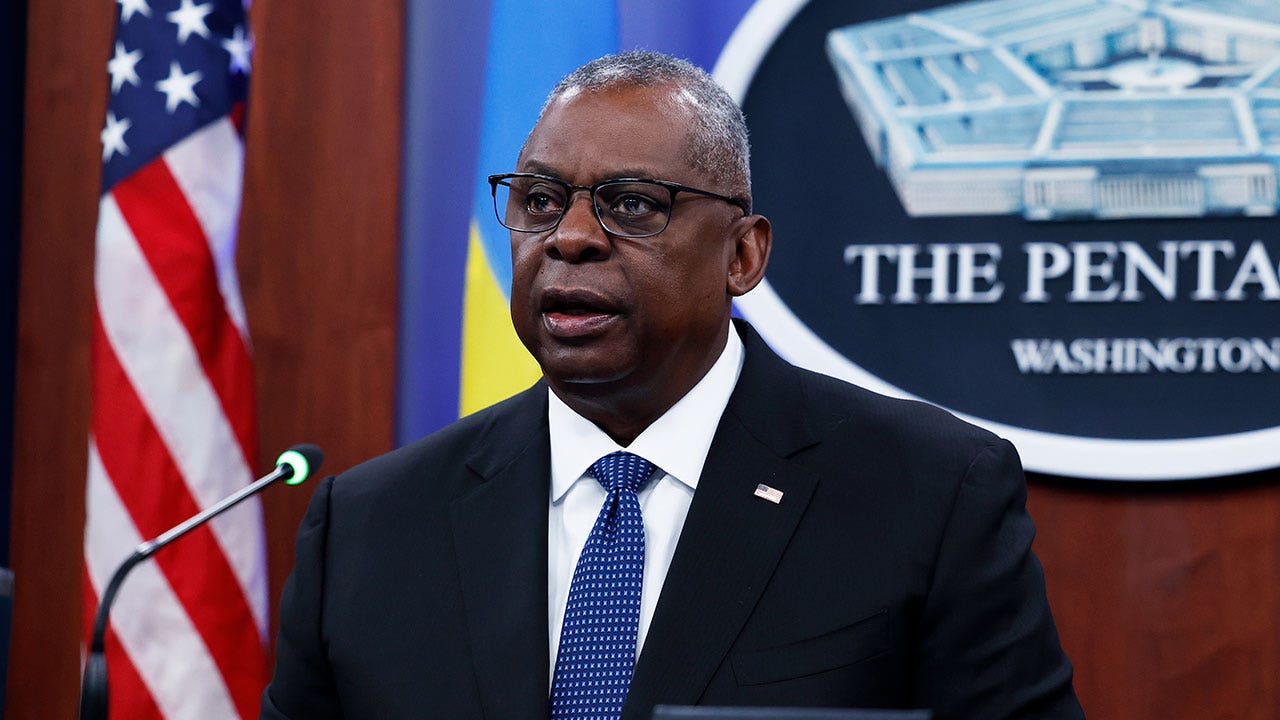Business
China’s Tech Giants Signal the First Steps in a Bumpy Recovery

Eight months ago, the future of China’s largest internet companies looked grim. Covid-era lockdowns crushed sales, and Beijing’s harsh tech regulations had spooked even audacious China investors. Shares of Alibaba, Baidu and Tencent dropped to some of their lowest levels in several years.
With China’s economy now reopen, the tech giants this week released earnings reports that showed initial signs of recovery. But the financial results, the first issued since the end of “zero Covid” restrictions, also reflected the uneven pace of China’s economic rebound and signaled that the companies’ makeovers, while underway, are likely to be rocky.
Baidu, China’s leading internet search business, and Tencent, owner of the ubiquitous messaging app WeChat, both recorded double-digit revenue growth in the first three months of the year over the same period in 2022, marking the first time in over a year that they had reached that level.
Revenue rose 10 percent at Baidu, which said on Tuesday that strong digital advertising sales had continued into the current quarter. Tencent on Wednesday attributed its 11 percent revenue climb in part to a rebound in digital payments as Chinese consumers began to spend money again after a long dry spell. Tencent, China’s dominant video game company, also benefited from an easing of restrictions on gaming licenses last year after a nine-month freeze.
On Thursday, Alibaba reported that revenue rose 2 percent from a year earlier, below analyst estimates. Its core online e-commerce division and cloud computing unit reported sales declines in the single digits, though online shopping began to rebound in March, the company said.
The reports followed a turbulent two years for tech companies under Beijing’s tight regulatory grip. After Alibaba’s founder, Jack Ma, criticized financial regulators in 2020 for stifling innovation, officials halted the public offering of Ant Group, a financial technology company built by Mr. Ma.
In January, a month after China abruptly reversed its “zero Covid” restrictions under public pressure, a top official at China’s central bank said the campaign against tech companies was “basically complete.” China’s top leader, Xi Jinping, is now hoping the country’s tech industry can provide a lifeline for growth. And spurred by an escalating tech competition with the United States, China is eager to nurture its beleaguered titans back to life.
“The worst time policy-wise for them is over,” said Tian Hou, the founder of TH Data Capital, a data analytics company in Beijing. “The government now wants to use these internet companies to create more jobs, innovate, and catch up with the United States.”
The initial investor reaction to the companies’ first-quarter results was muted. Shares of Baidu and Tencent were roughly flat this week in Hong Kong, though both have rallied since October. Alibaba’s stock fell roughly 6 percent on Friday, but was down about 2 percent for the week.
The companies’ fortunes will remain tied to China’s economy. Local governments are saddled with debt. The property sector, long a stimulant of growth, is sputtering. Data released by China’s National Bureau of Statistics for April underwhelmed analysts: Chinese were spending more on food, but appeared to avoid items like cosmetics and cars. Youth unemployment reached a record of 20.4 percent.
“People are going out on holiday, but they’re not spending compared to prepandemic levels,” said Bruce Pang, chief economist for Greater China at Jones Lang LaSalle, the global real estate and investment advisory firm. “They’re cautious because they have low confidence in job prospects and future sources of income.”
Alibaba is in the midst of an overhaul. It announced a reorganization in March that split the company into six units. And this week it announced a spinoff of its prized cloud division, which the company said would be completed within 12 months to prepare for a public listing.
The e-commerce giant also said it was exploring a public offering for its grocery chain and logistics arm, after a series of regulatory probes held up many promising tech firms from going public.
The breakup of Alibaba, one of China’s most iconic corporate empires, showcases the level of reassessment happening in the tech sector. For years, China’s internet firms swelled as millions of Chinese went online. Recently, that migration has reached a ceiling, and companies are competing intensely for the same customers.
All three of China’s big internet companies are hoping to tell investors a new story, one pegged to artificial intelligence, the new technology underlying services, like ChatGPT, that are promising to unseat old ways of doing business.
Daniel Zhang, the Alibaba chairman, who will also serve as chief executive of Alibaba’s soon-to-be independent cloud unit, described A.I. as a technology that would “reshape every aspect of our society.”
The companies hope investments in artificial intelligence will pay off for their cloud computing units, a technology that underpins A.I. services. Baidu said its A.I. cloud division reported its first profit last quarter.
This year, Baidu and Alibaba unveiled artificial intelligence systems similar to ChatGPT, which was developed by the Silicon Valley research lab OpenAI. Baidu said it had requested approval for the go-ahead after China’s cyberspace watchdog released guidelines for the A.I. systems in April.
Tencent has made “good progress” on its own A.I. model, the company said on Wednesday, with teams planning new A.I. offerings, though it did not elaborate.
The companies are focusing their A.I. services on enterprises or businesses — in part because chatbots with mass appeal could disrupt China’s firm hold on information. Alibaba and Baidu each said more than 100,000 enterprises had lined up to try their artificial intelligence products.
Alibaba, Baidu and Tencent are engaged in makeovers at a difficult time. Beijing’s grip on the economy is tighter than ever. Intensified rivalries with the United States have deprived Chinese companies of the access to some cutting-edge microchips necessary to develop the most advanced artificial intelligence systems. And analysts say a lucrative pool of domestic customers — China’s state-owned enterprises — are spurning private cloud-computing providers in favor of government-backed alternatives.
Recently, U.S. officials have called for a review of Chinese cloud providers such as Alibaba on national security grounds. Alibaba said Thursday that its cloud business declined last quarter in part because a major customer had backed out of its international service for “non-product reasons.”
Those difficulties, both in China and abroad, are keeping some investors away, knowing that the internet companies are not likely to return to the growth rates they had a decade prior. Others think they deserve a second look.
“I would suggest to forget the past,” said Kenny Wen, head of investment strategy at the asset management company KGI Asia in Hong Kong. “Now they are coming back, and we’re seeing gradual improvement. We need to give them a new evaluation standard.”

Business
Ari Emanuel denounces Israeli Prime Minister at Jewish group’s gala

Endeavor Chief Executive Ari Emanuel this week called for Israeli Prime Minister Benjamin Netanyahu’s ouster and denounced his leadership following the Oct. 7 Hamas attack.
The Hollywood power player made the remarks during the Simon Wiesenthal Center’s gala in Beverly Hills, where he accepted the Jewish organization’s Humanitarian Award, its highest honor.
“This is a painful and crucial moment for all of us who are Jews and who love Israel. It is not a moment to stay silent,” Emanuel said Wednesday evening.
“Israel is being led not by a problem solver, but by a problem creator. He is an agent of chaos and hatred and division and destruction. And enough is enough. Bibi Netanyahu is a failure.”
His remarks were met with both cheers and jeers, with some attendees walking out of the Beverly Wilshire Hotel. The audience was filled with members of Emanuel’s family and entertainment industry stalwarts including Larry David, Robert Kraft, Mark Wahlberg and Dwayne “The Rock” Johnson.”
Emanuel, who spoke of his family’s long ties to Israel and who supports a two-state solution, said Netanyahu “doesn’t want a peaceful solution” in the conflict “And it’s become clear that getting to a political solution and Netanyahu remaining in power are irreconcilable paths,” he said.
“As for his responsibilities to keep the people of the state of Israel and Jews across the globe safe, he has obviously failed spectacularly,” Emanuel said. “But he has succeeded wildly in using division to stay in power.”
One of the most powerful executives in Hollywood, Emanuel is also one of the most outspoken. Two years ago he urged businesses to cut ties with the artist formerly known as Kanye West after he made antisemitic remarks. Companies such as Adidas and the Gap stopped working with the rapper and producer.
In 2006, Emanuel wrote an open letter calling on Hollywood to boycott Mel Gibson after his antisemitic rant made during a drunk-driving arrest, saying the actor’s alcoholism “does not excuse racism and anti-Semitism.” Year later, Emanuel accepted an apology from Gibson and supported his return to the film industry.
The Oct. 7 terror attack by Hamas left about 1,200 Israelis dead and more than than 250 kidnapped. Israel’s military retaliation has killed more than 35,000 people and displaced thousands more, according to Gaza health officials. The war has polarized every sector of the U.S., including Hollywood.
Emanuel lamented the civilian casualties and suffering among Palestinians in Gaza. “The loss of even a single innocent child is a tragedy,” he said. But he called Israel’s war “justified” saying “Israel did not start the war in Gaza. Hamas did.”
He also criticized pro-Palestinian protesters using the slogan “from the river to the sea,” which he said means the elimination of Israel. “That’s the definition of genocide,” he said.
Business
Hotel strike nears end as union reaches more tentative deals with holdouts

The almost 10-month-old strike that initially involved roughly 60 hotels and more than 15,000 workers in Los Angeles and Orange counties is nearing its end.
In late April, the powerful hospitality union Unite Here Local 11 announced it had reached tentative contract agreements with 12 Southern California hotels. And on Friday, Unite Here Local 11 officials said the union had negotiated agreements with six more local hotels in recent days.
So far, nearly three dozen other hotels have struck deals with workers over the course of on-and-off strikes that began in July. The new contracts awarded higher pay and other benefits to thousands of housekeepers, cooks, dishwashers, servers and front desk workers.
“Hotels are falling in line,” Unite Here Local 11 co-president Kurt Petersen said. “We’re winning more the longer this goes on.”
Stephanie Peterson, a spokesperson for Aimbridge Hospitality, which operates six area hotels that recently settled, said in a statement: “We are pleased to have reached an agreement with the Union that puts our people first, and we are taking the immediate steps to begin issuing the backpay our associates have been waiting for.”
The new contracts include an almost immediate raise of $5 per hour for workers who don’t typically earn tips, including front desk clerks, dishwashers and housekeepers. Those workers will see a total hourly wage boost of $10 over the course of the contract that expires in January 2028.
Hotel Figueroa, LA Grand and Glendale Hilton are among nine hotels whose owners remain in contract negotiations with the union.
A point of contention had been the practice of some hotels recruiting recent migrants living in a Skid Row shelter to replace striking employees.
In a compromise, four hotels agreed to give the migrant workers priority in hiring for permanent positions. The hotels include the Le Meridien Delfina Santa Monica, the Four Points by Sheraton, the Holiday Inn LAX and the Pasadena Hilton.
“This is a testament to the idea of no workers left behind,” Petersen said. “Our members saw workers exploited and had a sense of solidarity. The bosses’ plan to divide people didn’t work.”
As part of the union’s agreement with Sheraton Park Anaheim, workers who had raised allegations of sexual harassment and were banned from the property will be brought back to work.
Fairfield Inn & Suites and Aloft hotels in El Segundo, which are owned by a real estate affiliate of the Blackstone Group, also approved deals with the union.
Blackstone Group spokesman Jeffrey Kauth said, “The agreement substantially increases wages and benefits over the term of the contract and provides a framework to recognize a broader number of employees who will benefit from these increases. We are proud to continue our positive working relationship with the union.”
During months of strikes, tensions have spiked on picket lines at various hotels and have continued at some locations even after deals are struck.
Outside the Hilton Pasadena, a worker and two union members who were picketing were issued noise citations by local police and are facing criminal charges for using handheld bullhorns.
The union as well as advocates with the American Civil Liberties Union of Southern California sharply criticized the city for pursuing the charges at a Monday city council meeting.
Peter J. Eliasberg, chief counsel at the ACLU of Southern California, sent a letter May 15 to Pasadena’s City Council members, chief of police and city attorney urging the city to drop the charges, saying they “very likely violate the First Amendment and Liberty of Speech Clause of the California Constitution.”
Video footage captured by the union’s general counsel Jeremy Blasi, and reviewed by The Times, shows two police officers recording decibel measurements of several picketers on a public sidewalk a few feet away.
“The City supports the free speech rights of protesters and does not take sides in disputes, but must balance the rights of those protesting with those nearby residents and businesses impacted by protest activities,” said Lisa Derderian, a spokesperson for the city of Pasadena, in an emailed statement.
Pasadena Mayor Victor Gordo said the city planned to review issues raised by the ordinance, but said he couldn’t comment on the claims.
Long Beach Mayor Rex Richardson called the deal a “historic contract agreement that ensures hospitality workers will have the dignity of living wages and industry-leading benefits to support their families,” according to a Unite Here Local 11 news release in April.
“Over the next four years, as we prepare for the 2028 Olympics and welcome visitors from around the world to our vibrant Long Beach community, we can be proud that our local tourism economy continues to thrive, while placing value on the workforce that keeps our hospitality industry running,” Richardson said.
Business
As more Californians fall behind in making debt payments, one group stands out

Stubbornly high inflation and interest rates are taking an increasing toll in California as the state experiences rising unemployment and slowing wage gains. And those feeling it the hardest: the largest and perhaps most budget-minded generation of them all.
Millennials, those roughly 28 to 43 years old, are generally thought to be more averse to debt and better savers than earlier cohorts such as Gen X (44 to 59 years old) and baby boomers (60 to 78).
But new data from the California Policy Lab at UC Berkeley show that while consumer debts overall are growing and becoming more difficult to manage for all but the very oldest generation in America, millennials are having the most trouble making their loan payments on time.
In the first quarter, 7.6% of millennial borrowers were at least 30 days late in making monthly payments on their credit card, auto and other loans. That compares with 6% of Gen X, 5.5% of Gen Z (ages 18 to 27) and 3.3% of boomers who fell behind on their loans. The earlier Silent and Greatest generations had even lower delinquency rates.
Unlike for Gen X-ers and boomers, the overall loan delinquency rate among millennials — who make up about one-fourth of California’s population — has now climbed above pre-pandemic levels. And economists worry that financial pressures will only continue to mount, especially with an end to the student loan repayment pause. Among other things, millennials are known for carrying a lot of college loan debt.
“I see no reason to believe that delinquencies aren’t going to be tracking higher,” said Evan B. White, the California Policy Lab’s executive director.
Foreclosures and personal bankruptcies for all ages are still very low by historical standards, as is the percentage of after-tax income that households are spending on making debt payments, another important indicator of financial stress.
Even so, consumers in California and across the country have been taking on more debt in recent quarters, including credit card borrowing. And 30-day delinquencies have been creeping higher — an early warning sign of potential trouble ahead.
Thus far consumer spending, which accounts for most of the nation’s economic growth, has held up well. But many people are feeling the effects of what’s been an extended period of high inflation and interest rates. A pullback by consumers could have a significant effect on the broader economy.
In the Federal Reserve’s annual report on the economic well-being of Americans, also released this week, about two-thirds of adults surveyed said that changes in the prices they paid in 2023 compared with the prior year had made their financial situation worse. And one-fifth of them said inflation had made things much worse.
The Fed report found that 72% of adults were at least “doing OK” financially, similar to the 73% figure in 2022 but well below the recent high of 78% in 2021.
U.S. households continue to benefit from a strong labor market, including solid, if slightly smaller, gains in wages. The nation’s unemployment rate was 3.9% in April, the 27th straight month in which the jobless figure has been below 4% — the longest such stretch since the 1960s.
California’s employment situation, however, has not been as strong. The pace of job gains statewide has lagged behind the nation’s. And California’s unemployment rate of 5.3% last month was the highest in the country, reflecting weakness in key sectors such as entertainment, high tech, and business and professional services. The number of unemployed workers in the state has increased by 164,000 over the last 12 months, according to California’s Employment Development Department.
Meanwhile, wage growth has slowed more in California than for the nation overall — and it’s now running below the rate of inflation, meaning workers’ purchasing power is shrinking.
In the 12 months ending in April, the average hourly earnings for all private employees in California were up 1.4% from the prior year. That’s less than half the rate of both wage growth and inflation for the United States. In contrast, from 2016 to 2022, California employees saw wage gains averaging 3% to 6% per year.
Nationally, aside from student loans, delinquencies on all types of consumer debt have been steadily rising since the end of 2021, according to the New York Fed.
During the first two years of COVID-19, consumers paid down their debts significantly, thanks in part to stimulus checks and other government programs. But since then, credit card delinquencies, in particular, have risen above pre-pandemic levels, and an increasing share of borrowers are maxing out on their plastic, most of them younger adults.
Why millennials seem to be struggling more financially may seem puzzling at first. They’re the best-educated generation and the first to grow up in the digital age. But many millennials also had the misfortune of entering their formative adult lives amid the Great Recession that began in late 2007 and left a trail of job and financial hardships for some years. Saddled with student loans and other debt, they have been slower to move out of their parents’ homes, start families and build wealth compared with earlier generations.
More recently, with home mortgage rates and home prices having soared, many millennials are stuck in apartments and feeling the squeeze of higher rents and prices for certain services that they are likely to need given their stage in life, like day care.
In fact, the Fed’s economic well-being report found that while there was little change for most population groups between 2022 and last year, one notable exception was parents living with their children under age 18. Given that women are having children later, this group would include a disproportionate share of millennials.
“Those are years when you’re moving into higher expenses of buying homes, buying cars and even setting aside money for children’s college,” said Greg McBride, chief financial analyst at Bankrate.com, which has studied generational differences in handling debt. “When we’ve experienced the type of inflation we’ve had, that really puts the squeeze on tight budgets.”
-

 Politics1 week ago
Politics1 week agoVulnerable Dem incumbents move to the center in key swing states as Biden panders to far-left base
-

 World1 week ago
World1 week ago‘Monstrous crime’: World reacts to attack on Slovakia’s prime minister
-

 News1 week ago
News1 week agoHow a migrant aid group got caught up in a right-wing social media thread : Consider This from NPR
-

 Politics1 week ago
Politics1 week agoSouthern border migrant encounters decrease slightly but gotaways still surge under Biden
-

 World1 week ago
World1 week agoSlovakia PM Robert Fico in ‘very serious’ condition after being shot
-

 Movie Reviews1 week ago
Movie Reviews1 week agoGuruvayoor Ambalanadayil movie review: This Prithviraj Sukumaran, Basil Joseph-starrer is a total laugh riot
-

 Movie Reviews1 week ago
Movie Reviews1 week agoIs Coppola’s $120M ‘Megalopolis’ ‘bafflingly shallow’ or ‘remarkably sincere’? Critics can’t tell
-

 World1 week ago
World1 week agoTaiwan grapples with divisive history as new president prepares for power















